Power & the PM: the key players with access to Anthony Albanese’s inner sanctum
An inside look into the power bloc orbiting the Albanese government reveals a PM committed forging the party’s closest relationship with the private sector in decades | Power & PM list Part I
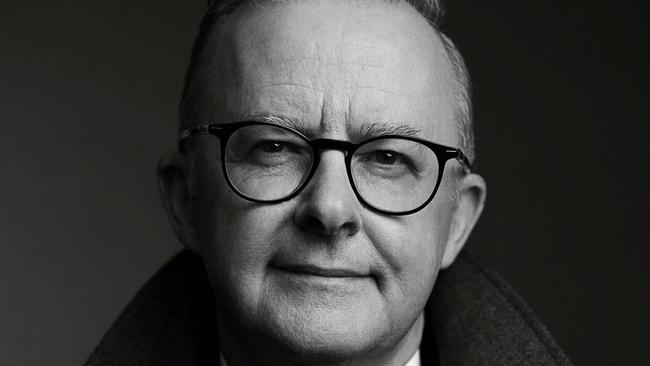
Anthony Albanese is on a mission to transform the way political, industrial and corporate power is exerted in Australia by actively enlisting big business to help deliver his economic and social agenda, as he seeks to redesign the Labor model for government.
An exclusive inside look into the corporate power bloc orbiting the Albanese government reveals a prime minister committed to resetting Labor’s focus by aligning factions and unions around a shared purpose, modernising the machinery of government and forging the party’s closest relationship with the private sector in decades.
Albanese – who had a front-row seat during the chaotic Rudd-Gillard years – has recalibrated Labor’s connection with the big end of town in pursuit of a broader tripartite consensus across the breadth of his agenda – from higher wages, narrowing the gender gap and productivity reforms to the voice and climate change.
“None of this is new. The fact is, Albo will talk to anyone. He has been quietly building relationships with the big end of town for the past 10 years,” says a colleague and friend who wants to remain anonymous.
“He has always been respectful of business; he may not necessarily like all of them but he understands the importance of the relationships with them. The point is, he is the ultimate pragmatist.”
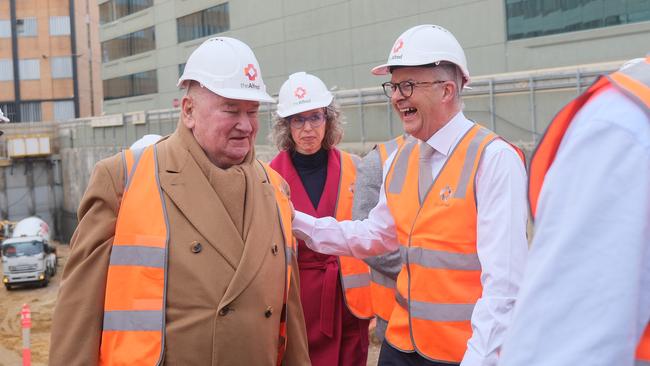
Among those Albanese has brought into the inner circle through relationships forged in opposition and who insiders claim have access and influence are transport magnate Lindsay Fox, tech billionaires Scott Farquhar and Mike Cannon-Brookes, Qantas chief executive Alan Joyce and business veteran Rod Eddington.
Commonwealth Bank chief executive Matt Comyn, who was close to former treasurer Josh Frydenberg, has made a successful transition under Labor and is counted by Albanese and Jim Chalmers among their inner sanctum of business leaders.
Industry lobby bosses have also been brought into the tent, including Business Council of Australia chief Jennifer Westacott and Australian Chamber of Commerce and Industry head Andrew McKellar.
Australian Banking Association chief executive Anna Bligh, who has known Albanese for decades and has a direct line into government, said business now had a seat at the table. “My observation is that Anthony Albanese came of age throughout his 20s during the Hawke and Keating governments and like so many others, as a result, tripartism was an instinctive position for him,” the former Queensland Labor premier says.
“It has been manifest from the earliest days in his leadership. I’ve sat around a number of boardroom tables … with a cross-section of the business community where he has made a point of reaching out, seeking views, asking questions and, importantly, really listening deeply.
“No government of any persuasion ever gets everything 100 per cent right … and there will always be things that are hard to navigate. But he has certainly made it clear he understands the challenges and opportunities that corporate Australia is facing.”
After putting the Morrison government off-side with his positions on China, iron ore magnate Andrew Forrest now has a sympathetic ear in Canberra, specifically around his promise to help fund Australia’s green-energy revolution.
Prominent businesswomen also make the power list, with Albanese and his ministers boasting close relationships with Chief Executive Women president Sam Mostyn and Tesla chair Robyn Denholm.
PwC boss Tom Seymour and BHP chief executive Mike Henry also make the cut of corporate leaders with influence across the new government.
Boosting relations with the private sector represents one leg of Albanese’s tripartite model – an economic system based on consensus agreement between trade unions, government and business.
After Albanese claimed an early consensus on migration, workplace bargaining and skills reforms at the jobs summit, a senior Labor MP said: “The optics stood in stark contrast to the strategy under Bill (Shorten)’s leadership, which was demonstrably anti-big business. That was all about class war. You don’t see any of that under the new bloke.”
While critics argue that this is a convenient mirage considering his pedigree as a youthful firebrand and member of Labor’s hard left, Albanese is committed to redefining the party while remaining loyal to its purpose.
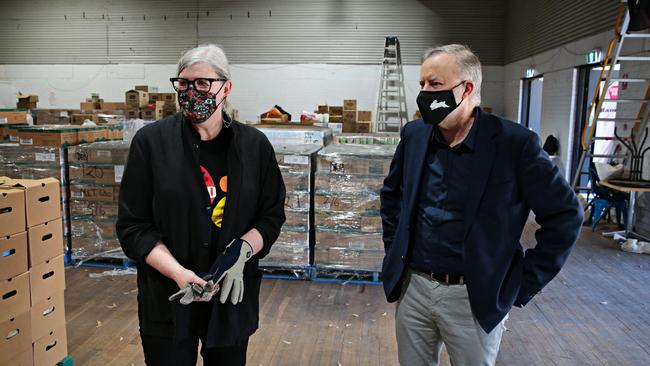
Those close to the Prime Minister claim it is a false assumption to view his rapport with big business as a cynical recalibration of Albanese’s ideological leanings. Many of his longstanding relationships across corporate power circles were forged when he was transport and infrastructure minister in the Rudd-Gillard years.
In his 26-year parliamentary career, the 59-year-old has balanced his closeness to business with the more radical union elements inside Labor’s caucus.
Albanese’s relationship with Fox, who founded Linfox in 1956, is among his closest in business circles. They speak frequently and caught up in July when both were in Paris.
“Internally, you would have thought it would have hurt him to be seen to be too close to business but for all those years before he was leader, because of the nature of the portfolios he held, these things bring you into contact with serious players,” a friend of Albanese says. “So he already had lots of contacts within those spheres. Lindsay Fox is a guy he likes. Twiggy Forrest loves him. Not long after he became leader, there was a broader range of people. He talks to a lot of those who are interested in renewable energy. BHP would be one of them. The key is that he treated everyone with respect.”
One of Albanese’s trickiest relationships has been with Joyce, whom the Transport Workers Union and the ACTU have relentlessly pursued during the pandemic over Qantas staff lay-offs and airport delays.
“Joyce is someone he is close to, but it’s interesting because unions hate Alan Joyce,” said a key Labor insider. “Every time Joyce is in town, he sees him. He doesn’t necessarily agree with him on a lot of things but it is one of the most interesting contacts, because the TWU is one of the most powerful unions in the country, and particularly in the caucus.
“Here you have in the TWU a major donor to the Labor Party and a key force in the industrial world putting pressure on him to do certain things but at the same time he has a very close relationship with the target of their hatred.
“This goes to his pragmatism.”
Sir Rod, chair of beverages giant Lion, has a longstanding relationship with Albanese, despite the pair not speaking as regularly as they have in the past.
The Infrastructure Partnerships Australia chair and former News Corp board member was appointed by Albanese to head up the statutory authority Infrastructure Australia when he was minister in the Rudd government.
At the height of Shorten’s class-war strategy railing against the Coalition’s proposed corporate tax cuts, Albanese used his Whitlam Oration in June 2018 to deliberately pitch away from the anti-big business approach.
“Labor doesn’t have to agree with business on issues such as company tax rates but we do have to engage constructively with business large and small,” he said.
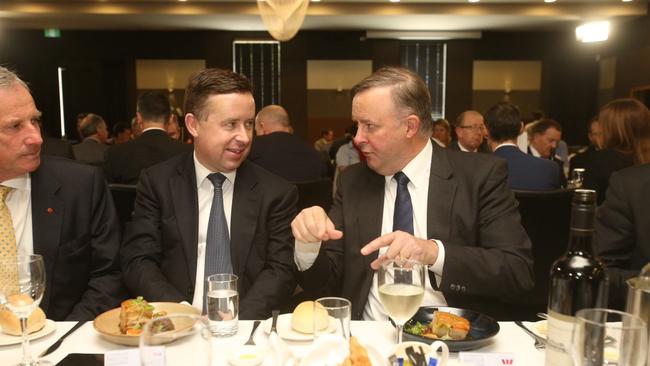
“We respect and celebrate the importance of individual enterprise and the efforts and importance of the business community.”
After Albanese claimed the leadership from Shorten in 2019, he recast the relationship between Labor and big business on the basis that you can’t govern well if you’re fighting the nation’s most powerful people. Albanese is upfront with business and lobby chiefs about wanting to harness private sector power to support the government’s social agendas – the referendum enshrining a voice to parliament in the Constitution, achieving net-zero emissions by 2050 and narrowing the gender pay gap. On all three points, the government is winning support.
McKellar, a vocal critic of some multi-bargaining proposals raised at the jobs and skills summit, said the relationship was constructive.
“We get on well. I have a lot of respect for him. It’s been a constructive dialogue. There is a lot of goodwill, I think he is well known to business and I think business knows him as a straight-shooter,” McKellar said.
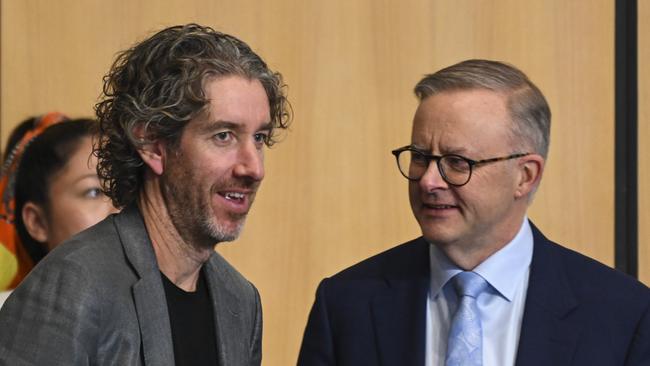
“He’s good to his word. We won’t always agree but he is good to his word. It is very clear that he is striving hard to build a renewed dialogue and a more constructive dialogue. From a business point of view we want to be part of that.”
After close to 10 years of Coalition rule, Labor-aligned lobbyists have reclaimed the ministerial wing’s blue carpets at Parliament House and popular Canberra pubs and restaurants frequented by political operatives.
Eamonn Fitzpatrick, a former senior press secretary under Julia Gillard and Kevin Rudd and head of communications for Bligh and Iemma, and Shorten’s former chief of staff Ryan Liddell are among the most in-demand lobbyists in Canberra as companies scramble for access and influence.
Seasoned political strategists including former Labor staffer Chris Fry, Hawker Britton managing director Simon Banks and Michael Choueifate, a former chief of staff to Albanese, are among those with a foothold into government.
A government insider said Albanese worked on a simple principle that “you can’t be a successful government if you can’t get on with business … He has looked at every mistake Labor have made and vowed not to repeat it. As for business, it’s no skin off their nose to say nice things.”
READ PART II OF ‘THE POWER & THE PM’ IN THE WEEKEND AUSTRALIAN
More Coverage
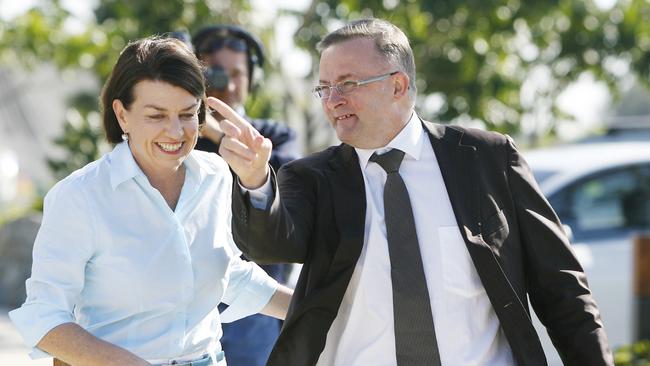


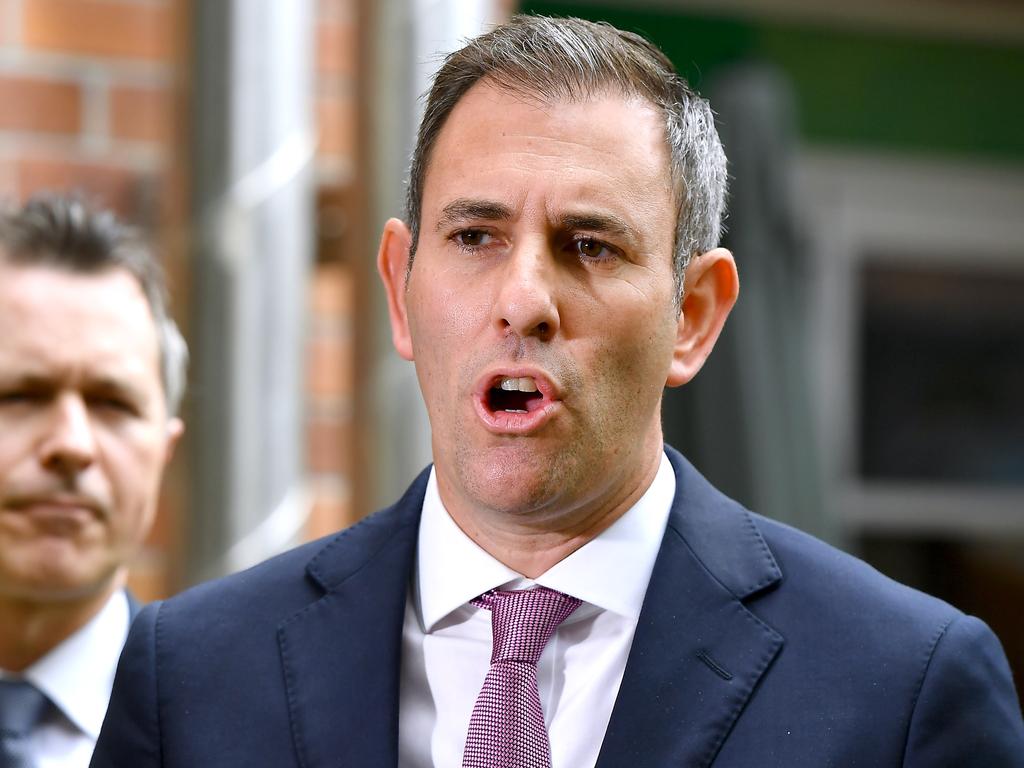

To join the conversation, please log in. Don't have an account? Register
Join the conversation, you are commenting as Logout